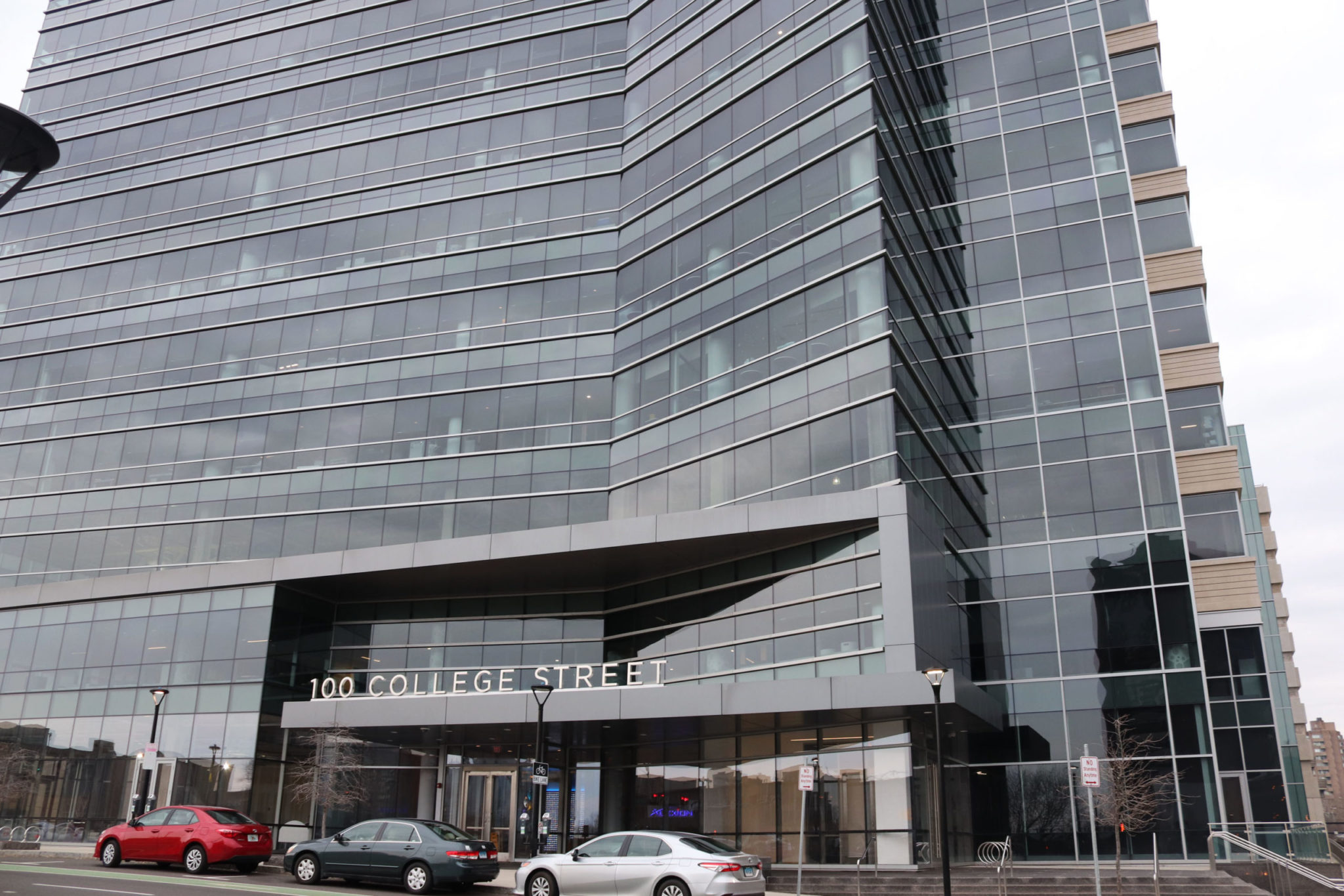
Marisa Peryer
Around a year after it was first proposed, plans for a new neuroscience institute at Yale are moving forward as administrators solidify the institute’s core goals and search for its faculty.
University administrators have released a report for the new institute — which is set to open in 2022 — that outlines five focus areas for the center. This report was a product of the Neuroscience Working Group, which was formed last April to discuss specific plans for the neuroscience institute. In a December email to faculty, University Provost Scott Strobel encouraged faculty to provide their observations and feedback about the recommendations via a webform. He added that the recommendations would be considered by the appropriate deans and department chairs.
Neuroscience professor and NWG member Jessica Cardin told the News that University administrators are working with individual departments to identify a group of scientists that will move to 100 College St. — the center’s planned home — from both the School of Medicine and School of Arts and Sciences campuses. According to Strobel, the University annually posts jobs in the fall and interviews potential candidates in the spring, with actual recruitment occurring in late spring. He added in an email to the News that new faculty will be considered in light of the five thematic areas identified in the report.
“[The NWG’s] conversations bridged the full scale and scope of neuroscience, a field that truly spans from molecules to minds,” Strobel wrote. “Although all of the neurosciences will not fit into a single building, the creation of a nexus for neuroscience is a critical step in strengthening the sciences and engineering at Yale. I look forward to taking this next step together.”
The University Science Strategy Committee first recommended the creation of a neuroscience center in a November 2018 report.
According to Cardin, the NWG represents a “huge diversity” of perspectives, including scientists from multiple disciplines of neuroscience and a wide range of seniority levels. In an email to the News, Cardin wrote that the NWG aimed to identify areas of research in which Yale excelled at and areas in which Yale could expand. These research areas include building blocks of cognition, development,
multiscale circuits, neurocomputation and neurodegeneration.
According to Cardin, the space at 100 College St. is “substantial” and needs renovation before any faculty can move in — especially since the scientists will require equipment for research ranging from cognition to cell biology. Before the 14-story space was chosen as the home for the institute, it was owned by Alexion Pharmaceuticals, which used the building for its headquarters before moving to Boston in 2017.
Cardin added that another priority for the NWG was to integrate educational and meeting spaces within the new institute. While 100 College St. will contain meeting spaces, it will also feature classrooms and “hopefully some facilities for more hands-on engineering and development,” with a goal of benefitting both undergraduate and graduate education.
In the report, the NWG identified design features that could foster collaboration, including seminar rooms with capacities of at least 50 people, natural gathering points for “casual/spontaneous conversations,” accessible parking and pilot funds for newer collaborations.
The report also suggested a “Neuro Shuttle” to facilitate travel between 100 College St. and the new clinical neuroscience building announced in April 2019 at the Yale New Haven Hospital St. Raphael’s Campus. In addition to providing resources to 100 College St., the NWG wrote, the University should also channel support to other key areas of campus, including the School of Medicine and
departments on Science Hill.
The report also recommended expanding collaboration with schools and units within the University with potential for a “neuroscience footprint,” including the School of Engineering & Applied Science. It also stressed collaboration with other priorities identified by the USSC, including data science and inflammation research.
According to professor of Cellular & Molecular Physiology and neuroscience and NWG member Susumu Tomita, the new institute will help scientists who are working in the basic sciences to team up with other scientists like psychologists, who focus on “information.”
“You are trying to combine material to information,” Tomita told the News in an interview. “I thought, this is a real opportunity we are walking on … the medical side is stronger for material, and psychology is much more strong in information, and I think we can bridge those things.”
Undergraduate degrees in neuroscience were first offered in 2018 as a partnership between the Psychology Department and Molecular, Cellular and Developmental Biology Department.
Valerie Pavilonis | valerie.pavilonis@yale.edu







